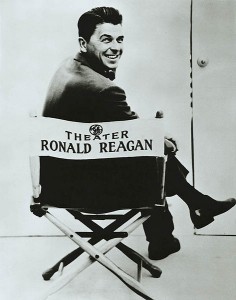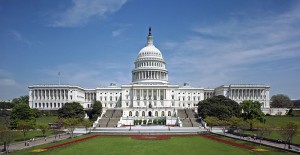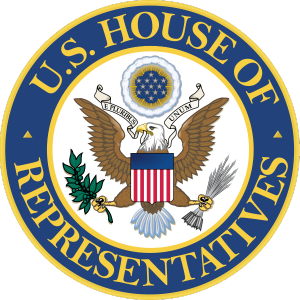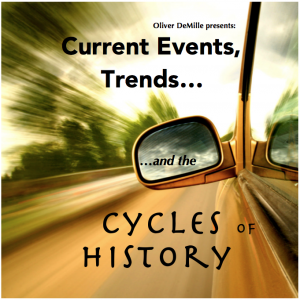Emotion and Politics
February 18th, 2013 // 10:35 pm @ Oliver DeMille
 In all the commentaries about the president’s 2013 State of the Union address and the responses by Marco Rubio and Rand Paul, one really stood out.[i]
In all the commentaries about the president’s 2013 State of the Union address and the responses by Marco Rubio and Rand Paul, one really stood out.[i]
Democratic thought-leader Van Jones said it outright: “Marco Rubio is dangerous for Democrats.”[ii]
Why?
Because he gets emotional about the issues, and, as Jones pointed out, genuine, authentic, caring emotion sways American voters.
The GOP has long acted as if all politics needs to be intellectual, and emotions are often treated as weakness or shallowness by the Right.
But the electorate loves emotion, and votes accordingly.
Put simply, if a top Republican can unite large segments of the populace behind authentic emotional passion, he or she will be a serious challenger in the 2016 election.
The last Republican candidate to elicit such raw emotion was Ronald Reagan.
Jones went on: “Marco Rubio is to the heart, what Paul Ryan is to the head…. [Rubio’s] ideas are extreme, the Tea Party loves this guy, but he is dangerous for Democrats because he can connect in a way that other people with those ideas cannot.”[iii]
Bill Clinton and Barack Obama appealed to both the mind and the heart, and so did Reagan.
Indeed, great presidents know how to effectively communicate in both realms.
The problem for the GOP in 2016 is simple: primary voters want something different than the general electorate.
While Republican primaries usually pick a nominee based on emotion, and then disappointed Republicans intellectually reason that they should vote for him because he is better than the liberal alternative, the better course would be to use intellect in the primaries and select a candidate that can win the general election by swaying the emotions of the general populace. While Democratic primaries tend to select candidates based on intellect (emphasizing who can win the White House), the general election emphasizes emotions.
This is a headache for a Republican party deeply divided between the following factions:
Tea Parties: “We’re broke, and going more broke. Fix the finances. America is in decline because our financial house is a mess—and getting rapidly worse. Freedom means small, limited government that lives within its means and unleashes the power of free enterprise.”
Fiscal Conservatives: “If we don’t get our fiscal house in order, we will continue to decline. But drop the angry tone. Let’s just fix the finances. Freedom demands wisdom.”
Social Conservatives: “It’s all about morals. If we don’t turn our hearts to God, we don’t deserve our freedoms or prosperity. We are in decline because our values are under attack. Freedom means moral strength.”
Compassionate Conservatives: “Government should be limited, fiscally strong, and attentive to real social needs. America is in decline because it is widely divided by classes and racial conflicts, and the solution is for government to wisely reform, cut spending, raise taxes where needed, and emphasize public-private cooperation to increase social justice. Freedom flourishes when government and the private sector work together.”
Neo-Conservatives: “Free markets are flourishing in the world, and the future of freedom has never been brighter. American isn’t in decline, we just need a solid conservative in the White House. Freedom means taking responsibility in the world.”
Ron Paul-Style Revolutionaries: “We’re way past reforming things. We need an outright revolution, and we need a great man or woman to lead it. Progress and decline are simply a matter of who leads us, and it’s time to get a great leader. Fix the finances, stop being the world’s policeman, and make America free and great again. Freedom is cool.”
There are also a number of Special-Interest Republicans who focus on one central theme (such as immigration, gun control, etc.) in their voting.
In the end, all of these groups will most likely support the Republican candidate, but during the primaries each will put forth its favorites.
This is the perhaps the biggest irony in American presidential politics: While Republican primary voters are generally very emotional, the Right usually turns intellectual during general elections.
The problem seems to be that the various factions of conservatives have a hard time getting passionate about supporting other kinds of Republicans.
They see the need to unite behind one candidate, but their support is mostly intellectual—not raw, gut emotion.
Democrats don’t seem to deal with the same challenge.
They are emotional (as well as intellectual) during the primaries, but they generally transfer their emotional support to the chosen candidate—regardless of who they supported in the primaries.
Intellect will be required for a candidate from either party to make it to the 2016 general election.[iv]
Once the two top candidates are selected, their biggest challenge will most likely be convincing Latino and independent voters that they care about their interests and needs.
No candidate is likely sway either group without a genuinely strong emotional appeal.
The GOP’s biggest benefit in 2016 might be President Obama.
If his administration continues its drive to the left—continued spending, taxing, borrowing, inflating the dollar, and regulating—most conservatives will be deeply emotional about politics after four more years.
If their frustration reaches a boiling point, we may witness a waking giant.
[i] Perhaps the most striking thing about the event is that fewer people watched the State of the Union address than any in the last 14 years.
[ii] CNN commentary on the 2013 State of the Union.
[iii] Ibid.
[iv] It always is.
***********************************
 Oliver DeMille is the chairman of the Center for Social Leadership and co-creator of Thomas Jefferson Education.
Oliver DeMille is the chairman of the Center for Social Leadership and co-creator of Thomas Jefferson Education.
He is the author of A Thomas Jefferson Education: Teaching a Generation of Leaders for the 21st Century, and The Coming Aristocracy: Education & the Future of Freedom.
Oliver is dedicated to promoting freedom through leadership education. He and his wife Rachel are raising their eight children in Cedar City, Utah.
Category : Blog &Government &Independents &Leadership &Politics
Bigger Isn’t Always Better
February 13th, 2013 // 4:04 pm @ Oliver DeMille
 In the push for more gun control and changes to our national immigration policy, a few very important things have been mostly left out of the news in recent weeks.
In the push for more gun control and changes to our national immigration policy, a few very important things have been mostly left out of the news in recent weeks.
They have been mentioned, yes, but not emphasized.
And these items deserve to be seriously considered by all Americans.
- First, economic figures came out last week showing that the U.S. economy actually shrank during the last quarter of 2012—with negative growth in the U.S. GDP. The Administration waived this off as hardly newsworthy, a mere blip in many months of growth, but for those who closely watch the economy this is a serious concern. Recession hurts us all.
- Second, a poll last week showed that 53% of American citizens consider the federal government a threat in their lives.[i] This is very different from an approval rating. In fact, this is extreme. A majority of Americans now see Washington as a threat. This is a big deal, because a nation that doesn’t trust its government is going to become increasingly dysfunctional—and solutions are going to be more difficult in such an environment.
- Third, a new article argues that Congress and some federal Executive-Branch agencies are prone to political corruption[ii]—especially from well-funded special interest groups. The article concluded with concern that it is probably only wishful thinking to hope we can ever return to being governed according to clear, known, accepted principles instead of bureaucratic complexities. Government now is just too big.
- Fourth, as a corollary of item three, the complexity brought on by the sheer size of the federal apparatus has created the same level of bureaucratic technicality at the state and many local levels of government. Even our towns, cities and counties now tend to operate in the complicated style of federal agencies, where simplicity is suspect and byzantine rules apply to things that should be easy and straightforward. Locales are often funded from Washington and find that their otherwise uncomplicated systems must be complex in order to interface with federal offices and programs. The World Economic Forum ranked the United States 76th in free economic burdens on business growth.
- Fifth, many modern governments are now in the business of creating new “rights,” telling people that they need these “rights,” and then finding that the government can’t afford to fund these “rights.”[iii] This causes government to grow even more, in the desperate attempt to fund newly-established “rights” by consistently increasing taxes. Note that such “rights” aren’t inalienable, but rather established by governments. Among these “rights” are health care, unemployment income, and the pursuit of money for a growing number of consumer wants.
- Sixth, the U.S. infrastructure of roads, bridges, electric grids and drinking-water systems will cost $2 trillion to bring up to first-world standards.[iv] This at a time the government can hardly afford its current liabilities.
In short, government policies are slowing or reversing our economic growth, the people don’t trust their government, the government just keeps growing and growing, costs are increasing, and government is becoming increasingly complex and difficult to manage at all levels.
This same bundle of policies—along with massive involvement in foreign wars—brought down many of the empires of history, including the Roman, Ottoman and British.
Perhaps the six items outlined above haven’t led the news cycle simply because they aren’t really anything new.
Most regular Americans probably already knew about these trends—at least at a gut level—before they were officially announced.
Still, these are in many ways the big news of 2013.
This is the new environment in which we live, and all of these trends are making freedom less likely to flourish in the months, years and decade ahead.
Government is simply too big right now, and as it continues to increase in size many more such problems will naturally arise.
[i] See discussion on This Week with George Stephanopoulos, February 3, 2013.
[ii] Richard A. Epstein, “The Perilous Position of the Rule of Law and the Administrative State,” Harvard Journal of Law and Public Policy, Winter 2013, vol. 36, no. 1, pp. 5-19.
[iii] See, for example, ibid, pp. 10-12.
[iv] See Fareed Zakaria, “Can America Be Fixed?” Foreign Affairs, January/February 2013, p. 28.
***********************************
 Oliver DeMille is the chairman of the Center for Social Leadership and co-creator of Thomas Jefferson Education.
Oliver DeMille is the chairman of the Center for Social Leadership and co-creator of Thomas Jefferson Education.
He is the author of A Thomas Jefferson Education: Teaching a Generation of Leaders for the 21st Century, and The Coming Aristocracy: Education & the Future of Freedom.
Oliver is dedicated to promoting freedom through leadership education. He and his wife Rachel are raising their eight children in Cedar City, Utah.
Category : Blog &Current Events &Economics &Featured &Politics
The Republican Presidential Candidate of 2016
February 13th, 2013 // 3:02 pm @ Oliver DeMille
 Conservatives keep saying two things in the aftermath of losing the 2012 presidential election to Barack Obama.
Conservatives keep saying two things in the aftermath of losing the 2012 presidential election to Barack Obama.
First, they talk a lot about the 2016 election, but there is no real front runner to be the Republican candidate.
In fact, the few people who are mentioned as possible nominees aren’t drumming up much excitement.
But the second idea that keeps floating around in conservative circles is a much worse problem for the Right.
This argument goes something like this: “Well, of course we lost the election. After all, the majority of people in America want the government to take care of them. They voted for Obama because he promised more government programs, and as long as the electorate acts this way conservatism isn’t going to win much in the years ahead.”
This narrative goes along with the widely-publicized comments by Mitt Romney about 47% of the people wanting a government handout.
Whether or not this got reported accurately—and in this media environment almost nothing does—the reality is that far too many on the Right see things this way.
This is the general mood among many conservatives right now: “The people want socialism, so America’s future is dim, and only some great, overwhelming event or leader will ever get things back on track.”
On the one hand, if this sense of overwhelm gets the House of Representatives to finally take a stand and just shut down the non-essential parts of the federal government, then it is all well worth it.
Until the House gets serious about stopping the White House and Senate from continuing its reign of debt, deficits, credit downgrades, more regulations and increased spending/borrowing, the decline of America will continue.
And by shutting down the non-essential government, the House will operate from a position of power.
But there is a bigger problem with the current sense of Republican malaise.
To put it bluntly, it is downright wrong.
Republicans don’t keep losing the presidential election because a majority of Americans want government programs.
This is an issue, but it isn’t the issue.
No, the Right doesn’t win the White House as often as the Left because it persists in believing that the electorate votes in presidents based mainly on the issues.
This is inaccurate.
In the television era, the majority votes for the coolest candidate, pure and simple.
Does anyone really think that Eisenhower, Nixon or Ford could have won the White House in our current media environment?
Well, maybe Eisenhower’s status of war hero would have been enough, and for the record, Ford never actually won at the top of the ticket.
But Carter never had a chance against Ronald Reagan.
In short, the coolest candidates win in our modern American political milieu.
And Republicans aren’t prone to lifting a candidate through the primaries and putting in a nominee based on electability–which now includes charismatic television effectiveness, or put simply, coolness—rather than the issues.
Democrats believe in the emotional appeal of candidacy, and they often put up the most appealing nominee.
For many, if not most, Republicans, this feels like a cop out, a sellout of what matters most (ideas) to what is most likely to win (emotional appeal).
This isn’t because Democrats are shallow, despite what some on the Right may say.
It is just that Democrats generally think it is possible to get a candidate that is both strong on the issues and also cool.
Republicans would like to do the same, where possible, but they ultimately tend to go with candidates on the issues.
Just the issues.
If the candidate is also cool—like Reagan or Arnold Schwarzenegger—so much the better, but for most Republican primary voters the issues are the issues are the issues.
Election after election, the cool candidate wins.
Voters chose Reagan over Carter and later above Mondale, and they picked Bush over Dukakis.
Reagan was cool, and Bush benefited from just how cool Reagan was.
But if Clinton had been running in 1988, the first Bush would have lost.
Clinton was definitely cool, as both Bush and Dole found out.
Here is how the modern-era elections have turned out:
Cool Candidate Result Impact
Reagan Won 2 Terms
Clinton Won 2 Terms
Bush II Won 2 Terms
Obama Won 2 Terms
Lacking Cool Result Impact
Mondale Lost
Dukakis Lost
Bush I Won 1 Term
Dole Lost
Gore Lost
Kerry Lost
McCain Lost
Romney Lost
In 2013, it might seem like Bush II doesn’t belong on the cool list. But just remember how intensely people supported him in 2000.
He was the frontrunner from the get-go, talked about for four years after 1996 as the next president (at least in Republican circles), the larger-than-life governor of Texas, the son of George and Barbara Bush, the next member of the dynasty.
And Al Gore was, well, he belonged on the list of candidates like Mondale, Dukakis and Dole.
Say whatever you want about any of these candidates and their political strengths or weaknesses, but a majority of voters thought they were boring.
On the same note, if Howard Dean had won the nomination he most likely would have won the election over Bush II—just apply the cool test.
Gingrich was the coolest leading Republican candidate in 2012, but he wasn’t as cool as Obama.
There is no way to verify this kind of historical “what if,” but today the Right is doing something just as ridiculous.
They are in denial, frustrated with the American voters, refusing to take responsibility for the fact that they need a real candidate.
Democrats already have their heir apparent, Hillary Clinton, and whether or not she eventually runs, the party is already laying the groundwork to win in 2016—their candidate will benefit from this, whoever it is.
Republicans have no such plan.
Their best hope right now is that Joe Biden is the next Democratic candidate (Biden has a lot of strengths, but in the modern television sense he isn’t cool, not like Reagan, Clinton, Bush II and Obama were cool.)
Republicans might luck out, for example if Rand Paul turns out to have the cool factor his father does combined with the party credentials primary voters look for, or if Marco Rubio can be more like Chris Christie or Christie can be more like Marco Rubio.
But right now, the 2016 Republican candidate for president is entirely unclear—which gives the clear advantage to Clinton II.
For Democrats, not having a real frontrunner yet wouldn’t be a problem.
Both Clinton and Obama came almost out of nowhere, for example.
But Republicans want someone who is known.
Even Reagan had to run twice before he won the presidency.
So, while it is possible that some new, exciting, cool conservative will arise in the next four years, it is highly unlikely.
The cast is probably set.
Republicans just have to decide who will win the lead role.
If they choose another candidate on the issues without giving much regard to coolness, they’ll lose again.
And again—until they figure out that the voters want a cool president.
For conservatives who consider this a frustrating, high-school approach to electing a president, you are probably right.
But until the Right puts up a presidential candidate that is both strong on the issues and cool, Republicans will keep losing.
***********************************
 Oliver DeMille is the chairman of the Center for Social Leadership and co-creator of Thomas Jefferson Education.
Oliver DeMille is the chairman of the Center for Social Leadership and co-creator of Thomas Jefferson Education.
He is the author of A Thomas Jefferson Education: Teaching a Generation of Leaders for the 21st Century, and The Coming Aristocracy: Education & the Future of Freedom.
Oliver is dedicated to promoting freedom through leadership education. He and his wife Rachel are raising their eight children in Cedar City, Utah.
Category : Blog &Culture &Current Events &Featured &Government &Politics
Two Types of Republicans and Rising Socialism in America
January 29th, 2013 // 7:33 pm @ Oliver DeMille
The future of America depends on the House of Representatives.
If it goes along with the Obama Administration’s plans, we’ll see major changes in the next four years, and the move toward socialistic policies will be as momentous as the swing to the right under Ronald Reagan.
The White House and Senate are committed to this course, and only the House stands in the way of a serious socializing of America.
There are two types of Republicans in the House, and as long as they are split the White House will probably keep winning.
On the one hand, the Legislative Republicans believe in government.
They are conservative in the sense that they want the government to make good policy and live within its means, but they believe in government and in passing laws to effect change.
More to the point, the Legislative Republicans are against many of the Administration’s policies, and they believe in stopping the White House agenda by getting involved in the legislation and amending it to make it more conservative.
On the face, this may seem like a good viewpoint.
But these representatives have little support for their amendments. Democrats typically vote against such amendments, and so do the other Republicans.
Because of this, such a strategy routinely fails.
The Legislative Republicans don’t get their amendments passed, so they simply end up splitting the vote and allowing the White House to win.
The second type, the Limited Government Republicans, don’t believe in more legislation.
They want smaller government, major spending cuts and wise fiscal choices concerning entitlements.
They want tax reductions and a balanced budget, because they believe good fiscal policy leads to immediate and lasting improvements in the economy.
The White House wins whenever it splits the votes of these two branches of the GOP.
Legislative Republicans argue that the problem comes from the Small Government Republicans who don’t support amendments to White House proposals, amendments that would make the laws less hurtful to the economy.
These two camps show little likelihood of working together, and as a result the White House agenda keeps passing.
So who are the bad guys?
Those who try to work with the president but slow down his plans, or those who want to stop his agenda in its tracks?
In truth, the Legislative Republicans are living in a fantasy world.
Even if they were to gain the support of all Republicans in the House, they would amend various policies and pass them, only to see the White House bring more and more proposals that would undo the slowing effects of their amendments.
Those in the House who are standing strongly against big government policies are the hope of America.
We need the Legislative Republicans to join them.
It takes three presidential terms to really turn America around.
In third terms, two things happen: 1) policies really take hold, and 2) more Supreme Court appointments come.
For example, Reagan effectively got a third term by putting George Bush into office and continuing many of his main policies.
Clinton wasn’t able to do this because Al Gore lost in the 2000 election.
In the case of Barack Obama, there is a strong sense in the Administration that enough changes need to be made that real change occurs even if a third Democratic term doesn’t come.
President Obama is very popular personally, not so much for his policies but because of his person.
Republicans keep winning in Congress, for example. So the president may not have a third term Democratic follow-up after 2016.
 As long as the Republicans are split, the White House can keep pushing its agenda and promote two term’s worth of policies during the next four years.
As long as the Republicans are split, the White House can keep pushing its agenda and promote two term’s worth of policies during the next four years.
This seems to be their strategy.
The future of freedom right now depends on the House of Representatives, and it is time for the Legislative Republicans in the House to step back, realize what’s at stake, rethink their stance, and take a more direct stand for freedom.
Category : Blog &Current Events &Economics &Featured &Government &Leadership &Liberty &Politics
The 50 Steps of Crisis Eras
January 10th, 2013 // 9:23 am @ Oliver DeMille
Note to the Reader: I offered this list three years ago in early 2010, and since then the steps of crisis have advanced. I felt it was time to review and see where we are right now. Today I added a few words of commentary that update things since 2010—these are at the very end of this list. If you want, feel free to skip to the end and read the last paragraph before reading the list. It is amazing how closely we are following this! —Oliver
Part I: The 50 Steps of Crisis Eras
The steps below come in the following general order during the 20-25 years of Crisis Eras in history. This pattern repeats itself every 80 years or so, with the last crisis era occurring between 1922-1945. Within the phases, steps can come in any order. Our current crisis era began on September 11, 2001.
PHASE I
The Pre-Crisis Era (Usually 7-12 Years before the Crisis)
1. Foreign war (e.g. French and Indian, Mexican-American, WWI, Gulf War)
2. Major economic boom (e.g. the roaring twenties, the dot.com nineties boom)
3. Declining morals (both sexual and charitable)
4. Escapist entertainment (novels, the Charleston, the sitcom, etc.)
5. Salesman values are the norm: tolerance, niceness, wealth, etc.
6. Two-party conflict
7. Big institutions lose popular support (e.g. British Parliament 1780s, Congress 1860s, Presidency 1920s, courts 1990s).
PHASE II
The Catalyst and Its Aftermath
8. Major catalyst event changes everything (e.g. Boston tea party, Election of Lincoln, 1929 stock market crash, 9/11).
9. Society gears up for crisis, but nothing happens yet.
10. Return to seeming normalcy, but growing fear and mistrust.
11. Gold (and in modern times steel and oil) prices soar.
12. Realist entertainment
13. Growing racial and religious intolerance
14. Business failures and buy outs
15. Increased regulation of business
16. Many foreign conflicts
17. Many government scandals
18. Widely increased stress and health problems across the nation
19. Economic downturn — looks bad but bounces back for a while
20. Entrepreneurial values begin spreading: ingenuity, self-reliance, confidence
PHASE III
The Escalating Crisis (Steps 21-28 can occur in any order and at any point before step 35, but they do occur at some point during crisis eras.)
21. Big crisis event! (war, pandemic, natural disaster, depression, etc.)
22. All society’s problems suddenly combined into 1 big problem!
23. It feels like our civilization itself is at stake (it is!)
24. Statesmen either choose pessimism, fear, worry about the future, or they choose optimism and planning for after the crisis.
25. Major economic downturn, often at depression levels.
26. Major war begins.
27. One political party takes charge (for next decade or more).
28. Leaders either hunker down and try to survive the crisis, or they study hard, research deep, start or build businesses to fund freedom, and figure out answers for when the crisis is over.
29. Emphasis off rights and on duties (draft, tax hikes, censorship of media, etc.)
30. Customized becomes Mass (fewer brands at store, one or two office pay-scales and benefits package, etc.)
31. Leaders either focus on self survival or they write, teach, publish and spread ideas of freedom for after the crisis.
32. Warrior values dominate society: courage, strength, resiliency.
33. Every family sacrifices greatly.
34. Religious observance soars.
PHASE IV
The Turnaround (This is where things take a shift toward positive!)
35. Health increases, stress and anxiety decrease.
36. Greatness returns, because there is no other choice: greatness in homes, communities, nations, business, politics.
37. Leaders either trust that the government will just handle things after the crisis or they continue studying, teaching, writing and spreading the ideas that need to be adopted when the crisis ends.
38. The splintering, complexity and cynicism of the past 40 years turns to cooperation, spirituality and optimism. Happiness increases. (e.g. the number of people who considered themselves very happy decreased 60% from 1957 to 2007. 60%!).
39. Crisis ends! Everyone celebrates.
40. Masses go home, ignore societal progress and get back to life.
PHASE V
The Post-Crisis Era—Major Changes (Typically 0-12 Years After Crisis)
41. Leaders establish a new set of economic rules (with a mixture of regulation and free enterprise and a bias toward one of these).
42. Leaders establish a new culture (with government, corporations or family as the central institution).
43. Leaders establish a new social contract (with a mixture of government and private institutions such as schools, health care, insurance, technology, arts, etc.).
44. Leaders establish a new society (with decisions on the accepted mixtures of morals, pleasures and duties).
45. Leaders establish a new ideal view of rights (with mixtures of inalienable, civil and human rights).
46. Leaders establish a new definition of family.
47. Leaders define a new class (or classless) system.
48. Leaders establish new boundaries, allies and treaties.
49. Leaders establish new constitutional models and legal codes to embody steps 41-48 above.
[These choices can go very good for freedom, prosperity and happiness, or very poorly for these. It is up to the citizens and statesmen who influence and impact these decisions. While the decisions are made during the early post-crisis era, the leaders are prepared and the ideas promoted during the 20-25 year period of crisis.]
What’s next? Well, it could go either of two ways:
50a. If leaders are effective in their studying, learning and spreading freedom and free enterprise ideas during the crisis era, the society adopts free enterprise, family-centered culture. moral-based society, inalienable and equal civil and human rights, strong family values, no class or caste system, and a freedom-based form of constitution.
50b. If leaders aren’t effective in their studying, learning and spreading the principles of freedom during the crisis era and early post-crisis era, society adopts lots of regulation, governmental and corporate controls over the people, pleasure-based society, a loss of rights, aristocratic class systems and laws, and a force-based government.
Part II: Comments by Oliver DeMille
March, 2010
Almost a decade ago, 9/11 created event 8, and we watched events 9-13 occur during the Bush Administration. Then, since the major economic crisis and the election of President Obama we have watched events 14-18 occur.
This is happening very quickly. With the Health Care law, we will likely see 14-18 accelerate in the next couple of years before we have a chance to reverse things in a presidential election. The election will probably determine whether or not we progress quickly or slowly toward major crises.
January, 2013
We have witnessed a significant increase of events 14-18 since March 2010, and after the midterm elections of 2010 and huge gains by Republicans in the House of Representatives, we saw event 19 occur. In fact, it was strong enough that the nation re-elected President Obama in 2012.
After the election, we began witnessing event 20, partly as numerous businesses shut down to use resources in other ways or restructured in the face of increasing regulations, and also as a number of entrepreneurs saw the decline of free enterprise and got even more serious about growing their businesses—regardless of what government does.
We will see event 20 increase in 2013, and events 21-25 sometime very soon—likely before the 2016 election. Whether 21 or 25 will come first remains to be seen.
Are you ready for a current events master class?
Click the image for information on Oliver DeMille’s upcoming six-week seminar.
Early bird registration ends 1/17/13; class begins 1/22/13
Category : Blog &Culture &Current Events &Economics &Entrepreneurship &Family &Featured &Generations &History &Leadership &Liberty &Politics &Prosperity &Statesmanship













